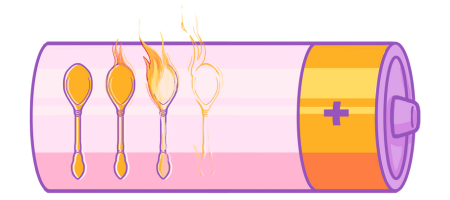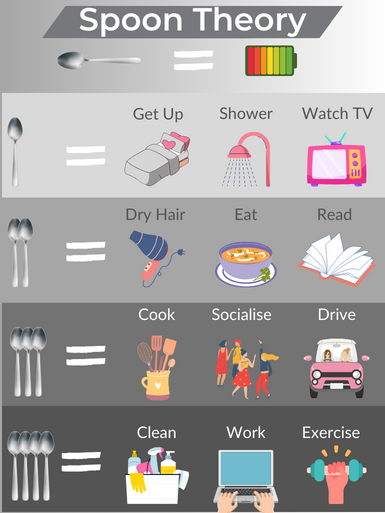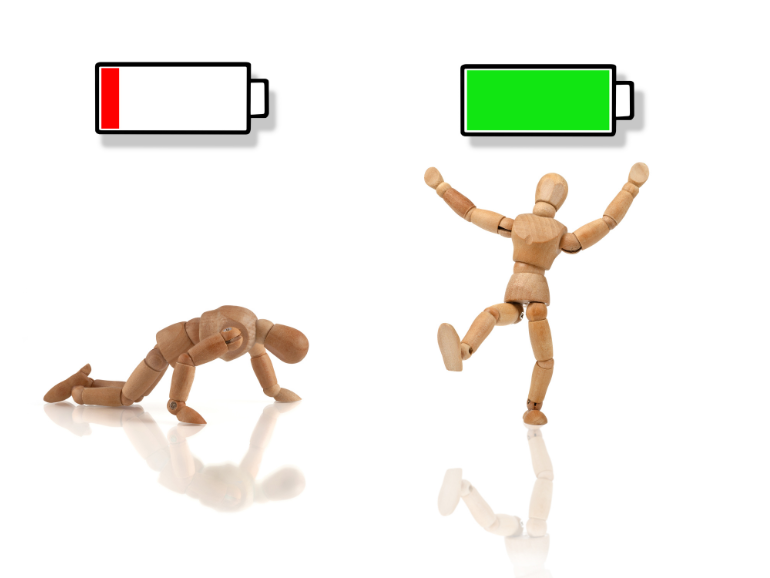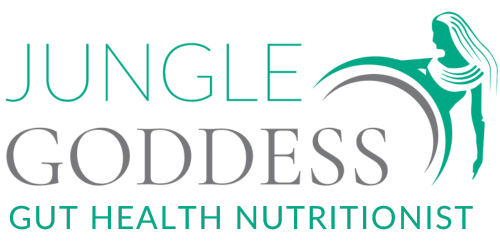Spoon Theory:
How Limited Energy Shapes Life with Crohn’s Disease
Let’s face it, living with a chronic illness like Crohn’s disease is exhausting. You learn to balance your daily activities with the limited energy reserves you have. Imagine having an energy bank where you start each day with a fixed number of spoons. Every activity, no matter how small, requires you to spend some of these spoons. This is the essence of the Spoon Theory. A metaphor that has deeply resonated with me as I navigate the challenges brought on by a recent flare-up of Crohn’s disease.
The Basics of Spoon Theory
The Spoon Theory was coined by Christine Miserandino, a woman living with lupus. She used this simple yet powerful metaphor to explain to her friend what it’s like to live with a chronic illness. In her analogy, spoons represent units of energy, and every task you undertake costs a certain number of spoons. When you run out of spoons, you’re out of energy for the day, regardless of how much you may want or need to do.

So What do Spoons and IBD Have in Common?
For those of us living with a chronic disease, every day can feel like an unpredictable journey into a world of limited energy. Chronic conditions like Crohn’s disease, as defined by the NHS, “are health problems that require ongoing management over several years or decades and are typically not curable but can be controlled with medication and therapies”.
Whether dealing with a chronic condition like Crohn’s disease or a chronic symptom such as bloating or acid reflux, the Spoon Theory is a lifeline. How many times have you had to cancel plans at the last minute? Spoon Theory helps us explain to others what we’re going through and why we may have to decline social invitations. It’s a reminder that self-care isn’t a luxury but a necessity. It’s a tool that helps us prioritize our energy and allocate our spoons wisely.
This image illustrates the energy cost of various daily activities in terms of spoons. It serves as a powerful visual aid, shedding light on the choices and sacrifices individuals with chronic illnesses often face.

Now, take a moment to imagine something. What if you had only 12 spoons to use for an entire day? How would you spend your precious energy? This scenario is a reality for many individuals with chronic illnesses, including myself. It forces us to make conscious choices about where we allocate our limited resources.
Counting Spoons: Theory in Practice with Crohn’s Disease
I live with Crohn’s disease, a chronic inflammatory bowel disease that affects the digestive tract. It brings with it a barrage of symptoms—intense abdominal pain, frequent and urgent bathroom visits, bloating, severe fatigue, and weight loss. These are just a few of the ways it can drain my energy bank.
On a typical day, I start with a limited number of spoons and it often feels like I’m constantly making withdrawals. The reality of Crohn’s means that even the simplest activities can feel like monumental tasks. Imagine going to the bathroom on average 15 times a day. Each trip to the bathroom costs precious spoons, leaving me with less energy for other essential tasks.

Normally, I sleep very well, but Crohn’s messes up that pattern, and restful sleep has become a rare commodity. Quality sleep is essential for recharging our energy reserves, but for those of us with chronic disease, it often remains elusive.
The Challenge of Eating and Anxiety
The combination of pain, frequent bathroom visits, and fatigue can significantly impact eating habits. The simple act of eating, something most people take for granted, can become a daunting task when you’re living with Crohn’s. The fear of triggering symptoms often leads to a loss of appetite or even a reluctance to eat at all. Additionally, the fear and anxiety that accompany the need to leave the comfort of home and be close to a bathroom can be overwhelming.

Are You Ready to Change Your Gut Story?
Stop planning life around your digestive issues and get back to living life fully.

